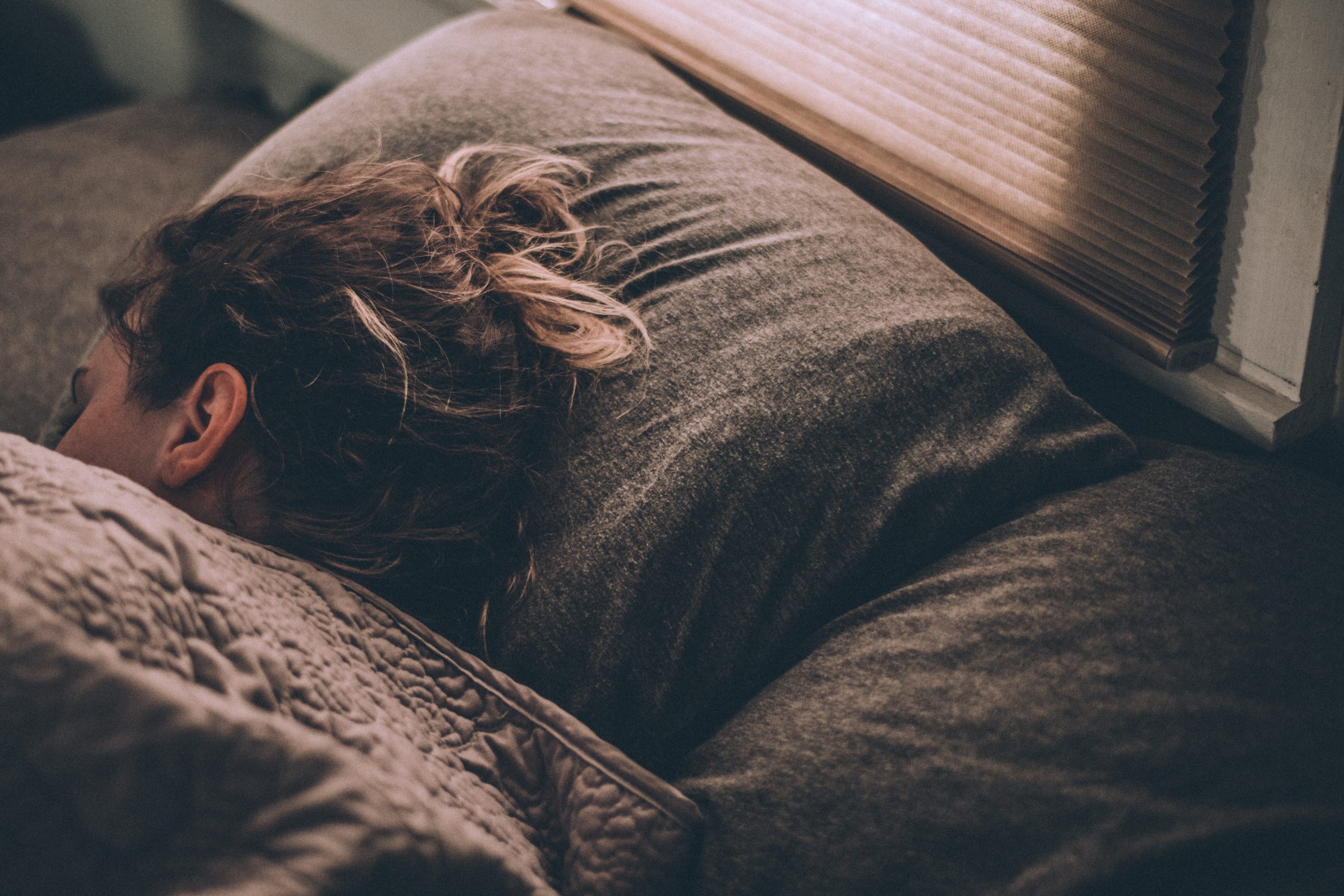Sleep and mental health are two vital components of our overall wellbeing, each influencing and being influenced by the other in numerous ways. Scientists have been delving deeper into the intricate link between sleep and mental health, with compelling evidence to suggest that quality sleep can be a significant catalyst for maintaining good mental health, and vice versa.
Conversely, the lack of good sleep can contribute to mental health issues, including anxiety, depression, and stress disorders. In this blog post, we will explore the dynamic relationship between sleep and mental health, supported by recent research findings.
 Understanding the Importance of Sleep
Understanding the Importance of Sleep
Sleep, rather than being a dormant period of unconscious rest, is an active, essential phase where the body and mind engage in vital rejuvenation processes. This nocturnal phase is not merely about ‘switching off’; it’s about undertaking essential maintenance work.
During sleep, our bodies and brains enter a state of heightened activity that underpins the functioning of our immune system, the regulation of our metabolism, the consolidation of our memories, the facilitation of our learning processes, and other critical functions.
Although individual sleep requirements may differ, the general consensus among sleep experts is that adults should aim for seven to nine hours of sleep each night. Striking the right balance between our wakefulness and sleep is crucial for maintaining our health and wellbeing.
Contemporary research underscores the immense influence that the volume and quality of sleep have on our mental health. It is not simply about ‘getting enough sleep’; the quality of the sleep that we do get is equally important. The duration and quality of our sleep can shape our mental resilience and our ability to manage the challenges that life throws our way.
A shortfall in either the duration or quality of our sleep can impact our cognitive functionality, disrupting the brain’s capacity to perform at its best. It can hinder our decision-making abilities, making it harder for us to weigh options and make rational choices.
It can interfere with our emotional regulation, leaving us feeling more vulnerable to mood swings, irritability, and feelings of sadness or anxiety. And it can disrupt our cognitive processing, making it more difficult to think clearly, solve problems, and learn new things.
In essence, sleep isn’t just about rest. It’s about restoration, resilience, and mental readiness. It’s about setting the stage for the day ahead, equipping our minds and bodies with the tools they need to navigate the world in the best possible way.
Sleep Disorders and Mental Health Conditions
The association between sleep disorders and mental health conditions is both profound and complex. A mounting body of evidence suggests a compelling link, shedding light on how these two areas of our health are intertwined. The extent of this correlation brings forth several key observations:
Prevalence of Sleep Disorders in Psychiatric Patients:
As reported by the National Institute of Mental Health, people diagnosed with certain psychiatric disorders are more prone to experiencing insomnia or other sleep disorders. This connection is supported by data from the American Sleep Association, which indicates that a staggering 50-80% of patients in an average psychiatric practice grapple with persistent sleep problems. In contrast, the incidence of chronic sleep problems in the broader U.S. adult population is significantly lower, ranging between 10-18%.
Bidirectional Relationship:
The relationship between sleep disturbances and mental health conditions isn’t one-sided. Studies suggest a bidirectional link, meaning that each can impact the other.
For instance, insomnia isn’t merely a symptom often seen in people with depression. Research indicates that it could also be a precursor, contributing to the onset of depression.
The reverse is also true, with depression potentially leading to sleep problems.
Coexistence with Anxiety Disorders:
The connection extends to anxiety disorders as well. People with conditions like Post-Traumatic Stress Disorder (PTSD) often wrestle with disrupted sleep and nightmares. An inadequate amount of sleep can exacerbate the symptoms of anxiety disorders, and this, in turn, can worsen sleep problems, creating a vicious cycle that can be challenging to break.
Understanding these intricate connections is vital. It not only helps us to comprehend the complexities of both sleep disorders and mental health conditions, but it also guides us towards the development of more effective treatment approaches that address both areas concurrently.

The REM Connection
In the symphony of sleep stages, Rapid Eye Movement (REM) sleep, the phase most associated with vivid dreaming, plays a particularly significant part in the intricate dance between sleep and mental health.
The complex nature of REM sleep and its relationship to our emotional and cognitive processes underscore its role in maintaining mental wellbeing.
Through research, scientists have found that individuals grappling with depression often exhibit irregular REM sleep patterns. They tend to dive into the REM stage faster and spend a more substantial part of their sleep cycle in this phase compared to their non-depressed counterparts.
This disruption in the regular sleep architecture signifies a potential link between atypical REM sleep and depression.
But why is REM sleep so crucial to our mental health? Let’s delve into its essential functions:
- Emotional Regulation: During REM sleep, our brain engages in a delicate process of emotion regulation. This phase facilitates the processing and integration of emotional experiences from our day, allowing us to navigate our feelings with more clarity and balance. Disruptions in this process may lead to emotional instability and an increased difficulty in managing stress and anxiety.
- Memory Consolidation: REM sleep also plays a vital role in memory consolidation. It is during this period that our brains sift through the myriad of experiences and information from the day, deciding what to retain and what to discard. When REM sleep is disrupted, this critical process can be impaired, potentially affecting our learning capabilities and cognitive performance.
In essence, alterations in REM sleep may not only be a reflection of existing mental health issues but could potentially contribute to their development or exacerbation.
By gaining a better understanding of this intricate connection, we can explore new pathways to support mental health through targeted sleep interventions.
The Healing Power of Sleep
While the intertwining of sleep disorders and mental health issues might seem daunting, there’s a silver lining to this intricate relationship. An expanding body of scientific research underscores the powerful role improved sleep can play in alleviating symptoms of mental health disorders.
One particularly effective intervention is Cognitive Behavioral Therapy for Insomnia (CBT-I). This structured program is designed to help individuals recognize and replace thought patterns and behaviors that result in sleep problems. The efficacy of CBT-I in treating a plethora of mental health conditions has been well-documented.
CBT-I is not limited to helping those with insomnia. It’s been shown to be a promising tool for individuals coping with depression, anxiety, Post-Traumatic Stress Disorder (PTSD), and other mental health conditions.
By addressing the root causes of sleep disturbances, we can also ease some of the related mental health burdens, making this therapy a multifaceted tool in the arsenal of mental health treatment.
In addition to therapeutic interventions, maintaining good sleep hygiene habits is crucial to improving sleep quality and, subsequently, mental wellness. These habits can make a significant difference and include:
- Consistency: Keeping a regular sleep schedule, going to bed, and waking up at the same time every day, even on weekends, can help regulate your body’s internal clock and improve your sleep quality.
- Environment: Creating a sleep-friendly environment, which is dark, quiet, comfortable, and cool, can enhance the quality of your sleep.
- Lifestyle Choices: Limiting caffeine and electronic device usage before bedtime can help signal your body that it’s time to wind down and prepare for sleep.The Role of
Sleep in Preventive Mental Healthcare
Mental health expert Dr. Lynn Winsten, based in Berkeley, CA, asserts the critical role of sleep in preventive mental healthcare strategies. Recognizing sleep’s significance paves the way for proactive mental healthcare approaches.
She emphasizes the importance of identifying and addressing sleep disorders early, potentially shielding against the onset of mental health disorders. “Sleep isn’t just restorative, but protective,” she suggests.
Instilling healthy sleep habits from childhood and incorporating sleep-focused interventions into treatment plans are other pillars of her approach.
She affirms, “Good sleep practices in childhood form a lifelong strong sleep routine and can prevent sleep disorders and associated mental health conditions.”
In her experience, a holistic, sleep-inclusive approach to mental health often yields substantial benefits. Dr. Winsten’s of Berkeley, CA insights highlight sleep as not only a restorative process but a powerful preventive tool in mental healthcare, underscoring the need for its emphasis in our mental wellness journey.
Conclusion
The intricate, mutually reinforcing relationship between sleep and mental health signifies the importance of both elements in our wellbeing. Inadequate sleep can fuel mental health challenges, and conversely, these very challenges can disturb our sleep patterns, triggering a seemingly endless cycle.
Yet, within this bidirectional relationship lies a promising gateway for intervention. The enhancement of sleep can be a potent catalyst for alleviating symptoms of mental health conditions, thus positioning sleep as a crucial player in the treatment and prevention of mental health issues.
As our understanding of sleep and mental health continues to deepen, we’re better equipped to leverage sleep as a formidable ally in our quest for overall wellbeing.
In light of this, don’t hesitate to reach out to healthcare professionals if you or a loved one is grappling with sleep-related or mental health issues. Remember, there’s no virtue in silent suffering – assistance is readily available. Prioritizing sleep may very well be the inaugural stride towards improved mental health.
One such professional poised to assist in this journey is Dr. Lynn Winsten, a mental health expert based in Berkeley, CA. Her knowledge and experience in the intersecting domains of sleep and mental health render her an invaluable resource. With her guidance, you can navigate the complexities of sleep disorders and associated mental health conditions, thereby making a significant stride towards better mental health.
Dr. Winsten’s comprehensive and empathetic approach can illuminate your path towards healthier sleep habits and improved mental resilience.
Additional Reading
https://lynnwinstendoc.com/how-to-talk-with-a-loved-one-about-depression/

